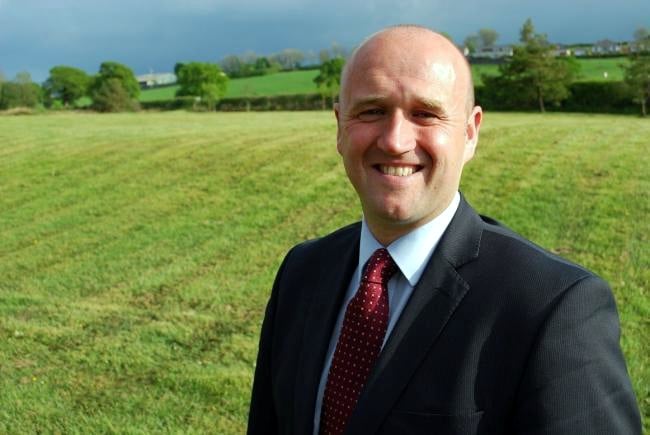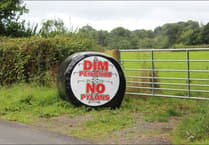It has been observed I would do far better opening the bar five days a week and writing two, rather than vice versa. Perhaps true, but a gratifying if unprofitable aspect to penning a column is regularly inhabiting the fantasy that something might change. Don’t laugh, but I actually convinced myself Plaid Cymru would spruce up their tatty Aberystwyth office in the weeks following my Dirty Old Town intervention — silly me, I know. Yet however short-lived each delusional imagining ultimately proves to be, in moments of writing, ‘it may make a difference’ provides excellent motivation and maintains focus on details of our lives that theoretically might be improved.
It was with such vain ambition that I recently highlighted nonsensical levels of racial bias exhibited by the Dyfed-Powys Police Force. A column in which I suggested Dafydd Llywelyn, the region’s Police and Crime Commissioner (PCC), should feel ashamed of data showing my boys are eight times more likely to be stopped and searched by Dyfed-Powys police than his. But whether our PCC does feel ashamed of this uncomfortable statistic was a question I forgot to ask when a few days ago Dafydd visited The Vaults.
I shaved, dressed up (for mid-week). Dafydd dressed down. So stylistically, we convened in a fashionable no-man’s land, a synchronous middle-aged ensemble of practical jumpers and dad jeans. Then, for four hours we discussed the region’s policing.
Thankfully, Dafydd did not turn up with a briefcase bursting with defensively stock responses to my questions, complaints, and observations. He listened, spoke freely and at surprising length, acknowledging genuine grievances while challenging charges he thought unfair. In word and attitude, Dafydd appeared progressive, more woke than I had anticipated. More understanding perhaps, partly because our PCC is steeped in family traditions of protest and direct action from the militant wings of the Welsh language movement.
Still, Dafydd took time to highlight improvements: that we have more police officers than ever before working in our communities; that 45 frontline officers now carry Nyxoid whilst on shifts, a medicine that rapidly reverses an opioid overdose; proud of increasingly diverting low-level young offenders away from the criminal justice system; of the improved CCTV system throughout the area. He is also proud of the dramatic rise in the force’s proactive policing ranking. A statistic improved in Dyfed-Powys by better liaising with victims and more rigorous following up of offenders. Proactive policing, I pointed out, is also a statistic boosted by increased levels of stop and search.
If not ashamed, Dafydd recognises stubborn racial bias encountered in stop and search across the Dyfed-Powys Police Force. My impression, that Dafydd is frustrated by the unambiguous data and personally disturbed that such measurable injustice occurs on his watch. I sense our PCC understands the importance, the benefits, and the significance of taking urgent action to reduce the region’s unacceptable over-policing of People of Colour.
In realising change, Dafydd has much on his side. The role of Police and Crime Commissioner carries more clout than you might imagine. Fundamentally, Dafydd sets the police and crime objectives for our area through his Police and Crime Plan. Furthermore, he determines the precept (the policing element within council tax) and then sets the Force budget. Though uninvolved in day-to-day operational matters, Dafydd also holds key strategic powers including appointing our Chief Constable, holding them to account, and if necessary, dismissing them. In effect and in statute, Dafydd Llewelyn is responsible for the totality of Dyfed-Powys policing.
Administratively, a PCC is all but impossible to dismiss. And as Dafydd is Plaid Cymru’s candidate for PCC, he is unconstrained by broader UK party politics. A disconnection from the mainstream that undoubtedly gives our PCC a greater degree of independence and flexibility than a Labour, Conservative, or Liberal Democrat candidate would enjoy.
With such overreaching powers, it is crucial for us and the PCC to remind ourselves that PCCs are not employed by the police force. To never forget our PCC is elected by the voters of mid Wales. And to remember the primary mission of the PCC is to be the effective voice of the people, statuted to improve policing and where necessary, to hold the force to account.
In this duty, a geeky career provides Dafydd with an unusually intellectual perspective into core policing issues. Dafydd was a principal intelligence analyst and worked within police intelligence for many years before moving to Aberystwyth University to lecture on criminology.
“I was motivated to stand for election as the PCC to try and utilise my personal experiences in a positive way,” he says. So, with this background in police intelligence, our PCC knows better than most that the Black and brown folk of mid Wales have never been a disproportionate source of crime.
For these reasons, the over-policing of People of Colour, the Holy Grail of social justice, may be resolved quickly by Dyfed-Powys Police — racial parity in police use of stop and search — from eight times to equity — historic change that carries a wider significance too large to contemplate.
Yet this is simple change, a shift in policing that requires no additional resources, no extra staff-hours, and which entails no new police actions or activities. A unique opportunity for our region to blaze a trail for social justice. Sorted on our watch. Imagine that.
Of course, I am not confident change will be delivered, let alone any time soon. I refer to Plaid Cymru’s ill-maintained Aberystwyth office. But, like shabby Pier Street, I know change can come, and that it still might. Only will is required. And the discussions outlined above suggest that if anyone will, Dafydd will.





Comments
This article has no comments yet. Be the first to leave a comment.